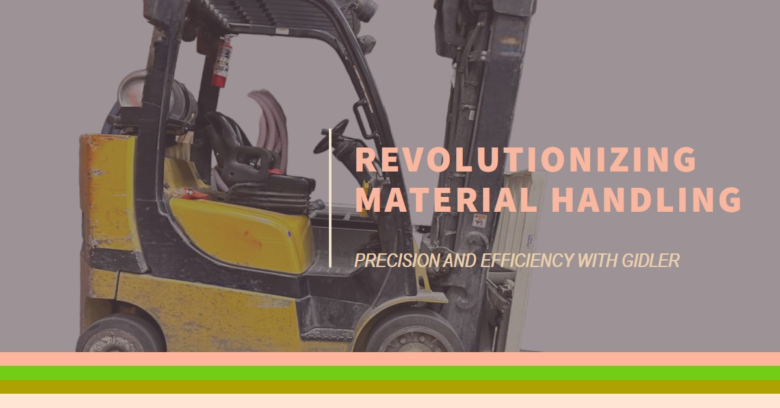Introduction to Gidler
In today’s rapidly evolving technological landscape, innovations continue to reshape industries, offering more efficient and sustainable solutions. One such innovation that has been gaining traction is Gidler. This article explores the concept of Gidler, its history, functionality, benefits, applications, challenges, and future prospects.
What is Gidler?
Gidler, derived from the combination of “guide” and “roller,” is a cutting-edge technology that revolutionizes the manufacturing process. It involves the use of specialized rollers equipped with advanced sensors and actuators to guide and control material movement with precision and efficiency.
The History of Gidler
The concept of Gidler originated from the need to enhance the performance and accuracy of traditional conveyor systems. Over the years, extensive research and development efforts have refined the technology, leading to its widespread adoption across various industries.
How Does Gidler Work?
Gidler operates by utilizing sensor feedback to adjust roller speed and position, ensuring optimal material handling. This real-time control mechanism enables seamless transportation of goods along the production line, minimizing errors and maximizing productivity.
Benefits of Using Gidler
- Enhanced Precision: Gidler’s precise control mechanism ensures accurate material handling, reducing waste and improving quality.
- Increased Efficiency: By streamlining the production process, Gidler enhances operational efficiency, leading to cost savings and faster turnaround times.
- Improved Safety: Advanced safety features integrated into Gidler systems minimize the risk of accidents and injuries in the workplace.
- Sustainability: Gidler’s energy-efficient design and reduced material waste contribute to environmental sustainability, aligning with global conservation efforts.
Gidler vs. Traditional Methods
Compared to traditional conveyor systems, Gidler offers significant advantages in terms of precision, efficiency, and flexibility. Its adaptive control technology allows for dynamic adjustments, catering to diverse production requirements with ease.
Applications of Gidler
Gidler finds applications across a wide range of industries, including manufacturing, logistics, automotive, aerospace, and pharmaceuticals. From assembly lines to distribution centers, Gidler enhances operational performance and drives innovation.
Gidler in Various Industries
- Manufacturing: Gidler optimizes material handling and production processes, improving throughput and product quality.
- Logistics: In the logistics sector, Gidler facilitates smooth movement of goods within warehouses and distribution centers, enhancing supply chain efficiency.
- Automotive: Gidler plays a crucial role in automotive manufacturing, ensuring precise assembly and seamless logistics operations.
- Aerospace: The aerospace industry relies on Gidler for handling sensitive components and materials with utmost precision and care.
- Pharmaceuticals: Gidler’s cleanroom-compatible design makes it ideal for pharmaceutical production, where hygiene and accuracy are paramount.
Future Trends of Gidler Technology
As technology continues to evolve, the future of Gidler holds immense potential for innovation and advancement. Key trends include the integration of artificial intelligence for predictive maintenance, the development of self-adjusting roller systems, and the expansion of Gidler’s application scope into emerging sectors.
Challenges and Limitations of Gidler
While Gidler offers numerous benefits, it also faces challenges such as initial implementation costs, compatibility issues with existing systems, and the need for specialized training. Overcoming these challenges requires collaboration between industry stakeholders and continuous technological advancements.
Gidler and Environmental Sustainability
In an era of increasing environmental awareness, Gidler plays a crucial role in promoting sustainability within manufacturing and logistics operations. By reducing energy consumption, minimizing waste, and optimizing resource utilization, Gidler contributes to a greener and more sustainable future.
Gidler: Revolutionizing Manufacturing
Gidler represents a paradigm shift in the manufacturing landscape, offering a blend of precision, efficiency, and sustainability. Its transformative impact extends beyond individual businesses, shaping entire industries and driving economic growth.
Gidler in the Consumer Market
Beyond industrial applications, Gidler holds potential in the consumer market, particularly in sectors such as retail and e-commerce. From automated checkout systems to smart logistics solutions, Gidler enhances the customer experience and streamlines operations in the retail ecosystem.
Conclusion
In conclusion, Gidler stands at the forefront of technological innovation, poised to reshape industries and redefine manufacturing standards. With its precision, efficiency, and sustainability credentials, Gidler represents a game-changer in the pursuit of operational excellence and environmental responsibility.
FAQs
- What industries can benefit from Gidler technology? Gidler technology has applications across diverse industries, including manufacturing, logistics, automotive, aerospace, and pharmaceuticals.
- How does Gidler contribute to environmental sustainability? By reducing energy consumption, minimizing waste, and optimizing resource utilization, Gidler promotes environmental sustainability within manufacturing and logistics operations.
- What are the key challenges associated with implementing Gidler systems? Challenges include initial implementation costs, compatibility issues with existing systems, and the need for specialized training.
- What are the future trends in Gidler technology? Future trends include the integration of artificial intelligence for predictive maintenance, the development of self-adjusting roller systems, and the expansion of Gidler’s application scope into emerging sectors.
- Can Gidler technology be applied in the consumer market? Yes, Gidler technology holds potential in the consumer market, particularly in sectors such as retail and e-commerce, where it enhances the customer experience and streamlines operations.
“Unlocking the Potential of Kecveto: A Guide to Cognitive Enhancement and Improved Health”
Insurance Essentials for OpenHousePerth.net: Protecting Your Property and Business



